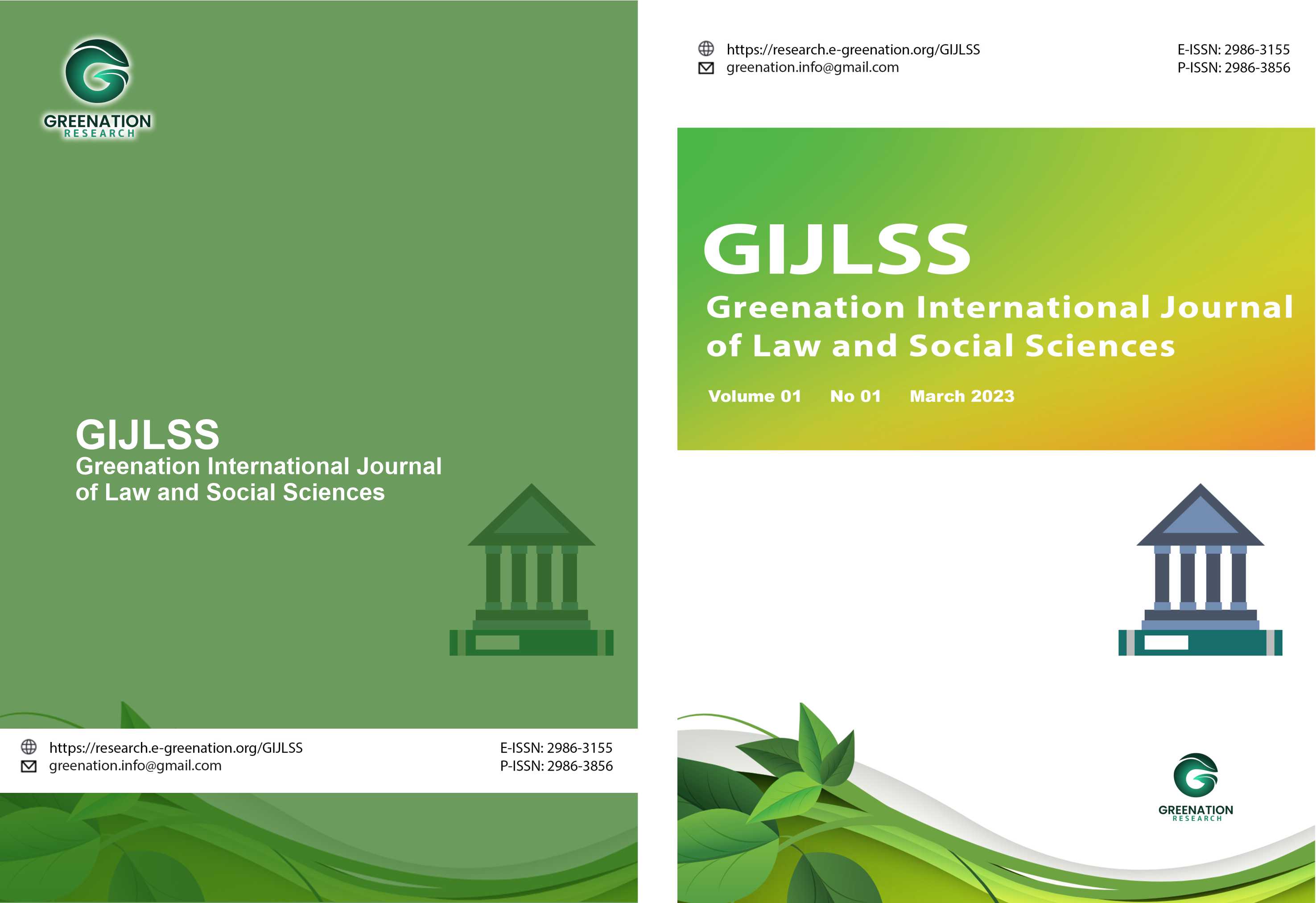Strategy for Optimizing the Position of Whistleblowers and Justice Collaborators in Corruption Criminal Law Reform in Indonesia
DOI:
https://doi.org/10.38035/gijlss.v3i2.421Keywords:
Whistleblower, Justice Collaborator, Corruption, Legal Protection, Criminal Law ReformAbstract
Whistleblowers and justice collaborators play an important role in dismantling complex corruption networks that often involve powerful actors in government and the private sector. However, in practice, their existence still does not receive optimal legal protection. This study aims to examine the strategy for optimizing the position of whistleblowers and justice collaborators within the framework of corruption criminal law reform in Indonesia. Using a normative legal method, this study analyzes applicable laws and regulations, such as Law No. 31 of 1999 in conjunction with Law No. 20 of 2001, Law No. 13 of 2006 in conjunction with Law No. 31 of 2014, and LPSK Regulation No. 4 of 2021, as well as relevant legal theories. The study results indicate a gap between legal norms and their implementation, especially regarding the criminalization of whistleblowers, the unclear procedure for granting justice collaborator status, and the weak institutional protection of LPSK due to limited budget and authority. In addition, structural challenges and a culture of silence in the bureaucratic environment worsen the situation for whistleblowers. This study recommends revising regulations by adding an explicit prohibition on the criminalization of whistleblowers, strengthening the LPSK institution, providing financial incentives and economic protection, training law enforcers, and utilizing safe and anonymous reporting technology. This strategy is expected to encourage broader public participation in efforts to eradicate corruption and form a more just, inclusive, and sustainable legal system.
References
Akmal, R. S. (2023). Efektivitas Perlindungan Hukum Terhadap Saksi Pelapor Dalam Tindak Pidana Korupsi Di Lembaga Perlindungan Saksi Dan Korban (LPSK). Journal of Lex Philosophy (JLP), 4(2), 567-585.
Amin, S. &. (2022). Perlindungan hukum bagi whistleblower dalam tindak pidana korupsi di Indonesia. Media of Law and Sharia, 3(3), 205-218.
Anggraeni, S. A. (2023). Kajian Yuridis Perlindungan Hukum Saksi Pelaku Yang Bekerjasama Dalam Undang-Undang Perlindungan Saksi dan Korban. Jurnal Litigasi Amsir, 10(3), 292-304.
Ariyanti, D. O. (2023). Urgensi Konsep Pembaruan Perlindungan Hukum Terhadap Whistleblower Tindak Pidana Korupsi di Indonesia. Jurnal Hukum Ius Quia Iustum, 30(3), 583-601.
Dewiwaty, D. M. (2023). Peranan Dan Kedudukan Justice Collabolator (JC) Dalam Sistem Peradilan Pidana Indonesia. Jurnal Pendidikan dan Konseling (JPDK), 5(2), 4895-4900.
Dwiyanti, A. &. (2024). Urgensi dan Motivasi; Perlindungan Hukum bagi Justice Collaborator dan Whistleblower dalam Tindak Pidana Korupsi. Legalite: Jurnal Perundang Undangan dan Hukum Pidana Islam, 9(2), 132-147.
Gultom, L. N. (2020). Studi Komparatif Antara Justice Collaborator Dengan Whistleblower Dalam Tindak Pidana Korupsi. Corruptio, 1(2), 129-142.
Gunawan, Y. (2019). Peran dan Perlindungan Whistleblower (Para Pengungkap Fakta) Dalam Rangka Memberantas Tindak Pidana Korupsi Di Indonesia. Law Review, 18(3), 262-287.
Hatta, M. (2024). Kedudukan Hukum Whistle-Blower Dalam Penanggulangan Tindak Pidana Korupsi di Indonesia. Cendekia: Jurnal Hukum, Sosial dan Humaniora, 2(2), 487-507.
Odhy, F. (2021). Perspektif Budaya Hukum Dalam Perkembangan Kasus Korupsi di Indonesia. "Dharmasisya” Jurnal Program Magister Hukum FHUI, 1(1), 30.
Pahlevi, F. S. (2022). Strategi Ideal Pemberantasan Korupsi di Indonesia. Al-Syakhsiyyah: Journal of Law & Family Studies, 4(1), 44.
Pangaribuan, R. S. (2024). Optimalisasi Sistem Pencegahan Korupsi Melalui Analisis Yuridis Normatif dalam Konteks Implementasi Nilai-Nilai Hukum Pancasila. Journal of Mandalika Literature, 5(4), 658-664.
Pertiwi, E. K. (2020). Tinjauan Norma Hukum Justice Collaborator Dan Whistleblower Pada Tindak Pidana Korupsi. Perspektif, 25(2), 92-106.
Pratama, B. D. (2023). Analisis Kebijakan Kedudukan Justice Collaborator Dan Whistleblower Dalam Tindak Pidana Korupsi. Bureaucracy Journal: Indonesia Journal of Law and Social-Political Governance, 3(1), 313-327.
Pratama, D. S. (2024). KEPASTIAN HUKUM PENERAPAN JUSTICE COLLABORATOR TERHADAP PELAKU TINDAK PIDANA NARKOTIKA. SENTRI: Jurnal Riset Ilmiah, 3(6), 2649-2659.
Rosidi, A. S. (2023). Model Perlindungan Saksi Dan Korban Sebagai Justice Collaborator Dalam Perkara Tidak Pidana Korupsi “Tinjuan Analisis Undang-Undang Perlindungan Saksi Dan Koban". Jatiswara, 38(2), 134-147.
Rumapea, E. L. (2024). Perlindungan Hukum Bagi Justice Collaborator Dalam Tindak Pidana Korupsi Di Indonesia. Jurnal Retentum, 6(1), 31-42.
Sentosa, D. &. (2024). Penggunaan Justice Collaborator Terhadap Efektivitas Penyelesaian Kasus Korupsi. Jurnal Kajian Hukum Dan Kebijakan Publik, 2(1), 337-346.
Setiawan, A. &. (2023). Pertanggungjawaban Pidana Bagi Justice Collaborator Dalam Tindak Pidana Korupsi. Amnesti: Jurnal Hukum, 5(2), 271-288.
Yusni, M. (2020). Keadilan dan Pemberantasan Tindak Pidana Korupsi Perspektif Kejaksaan. Surabaya: Airlangga University Press.
Downloads
Published
How to Cite
Issue
Section
License
Copyright (c) 2025 Thomy Faisal, Suparno Suparno

This work is licensed under a Creative Commons Attribution 4.0 International License.
Copyright :
Authors who publish their manuscripts in this journal agree to the following conditions:
- Copyright in each article belongs to the author.
- The author acknowledges that the Greenation International Journal of Law and Social Sciences (GIJLSS) has the right to be the first to publish under a Creative Commons Attribution 4.0 International license (Attribution 4.0 International CC BY 4.0).
- Authors can submit articles separately, arrange the non-exclusive distribution of manuscripts that have been published in this journal to other versions (for example, sent to the author's institutional repository, publication in a book, etc.), by acknowledging that the manuscript has been published for the first time at GIJLSS.























